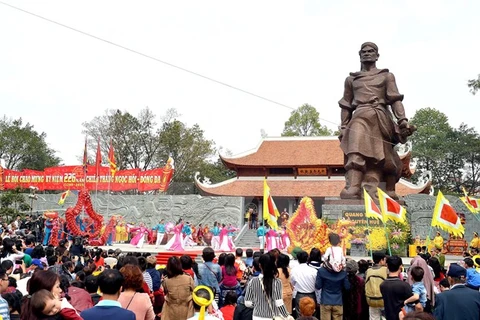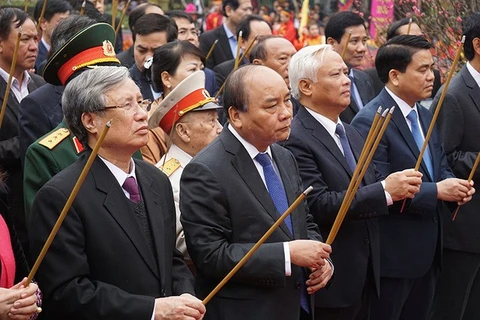Hanoi (VNA) – Prime Minister Nguyen Xuan Phuc attended the Dong Da festival in Hanoi on February 20 (the fifth day of the Lunar New Year) and offered incense in tribute to Emperor Quang Trung, marking the 229th anniversary of Ngoc Hoi–Dong Da victory over Chinese Qing invaders.
The festival also saw the attendance of Head of the Party Central Committee’s Inspection Commission Tran Quoc Vuong, Secretary of the Hanoi Party Committee Hoang Trung Hai, Vice Chairman of the National Assembly Uong Chu Luu, a long with a large number of visitors from the capital city and other localities.
Addressing the event, Chairman of the People’s Committee of Dong Da district Vo Nguyen Phong highlighted the great significance of the Ngoc Hoi-Dong Da victory under the leadership of Emperor Quang Trung (also known as national hero Nguyen Hue) 229 years ago, during which over 20,000 Qing troops were defeated, liberating the imperial city of Thang Long and regaining national independence and freedom.
Since then, the fifth day of the first lunar month has become the traditional day marking the historic victory.
The Ngoc Hoi–Dong Da victory has also gone down in Vietnamese history as an immortal and epic struggle for national construction and defence.
Dong Da Mound reportedly witnessed fierce battles between Emperor Quang Trung’s soldiers and the Chinese invaders 229 years ago.
The festival is designed to uphold the country’s cultural values, while educating young generations about the tradition of patriotism and national pride.
This year’s festival also included a “Tuong” (classical drama) play re-enacting the victory, and dragon dancing, art performances, and folk games.-VNA
VNA






















